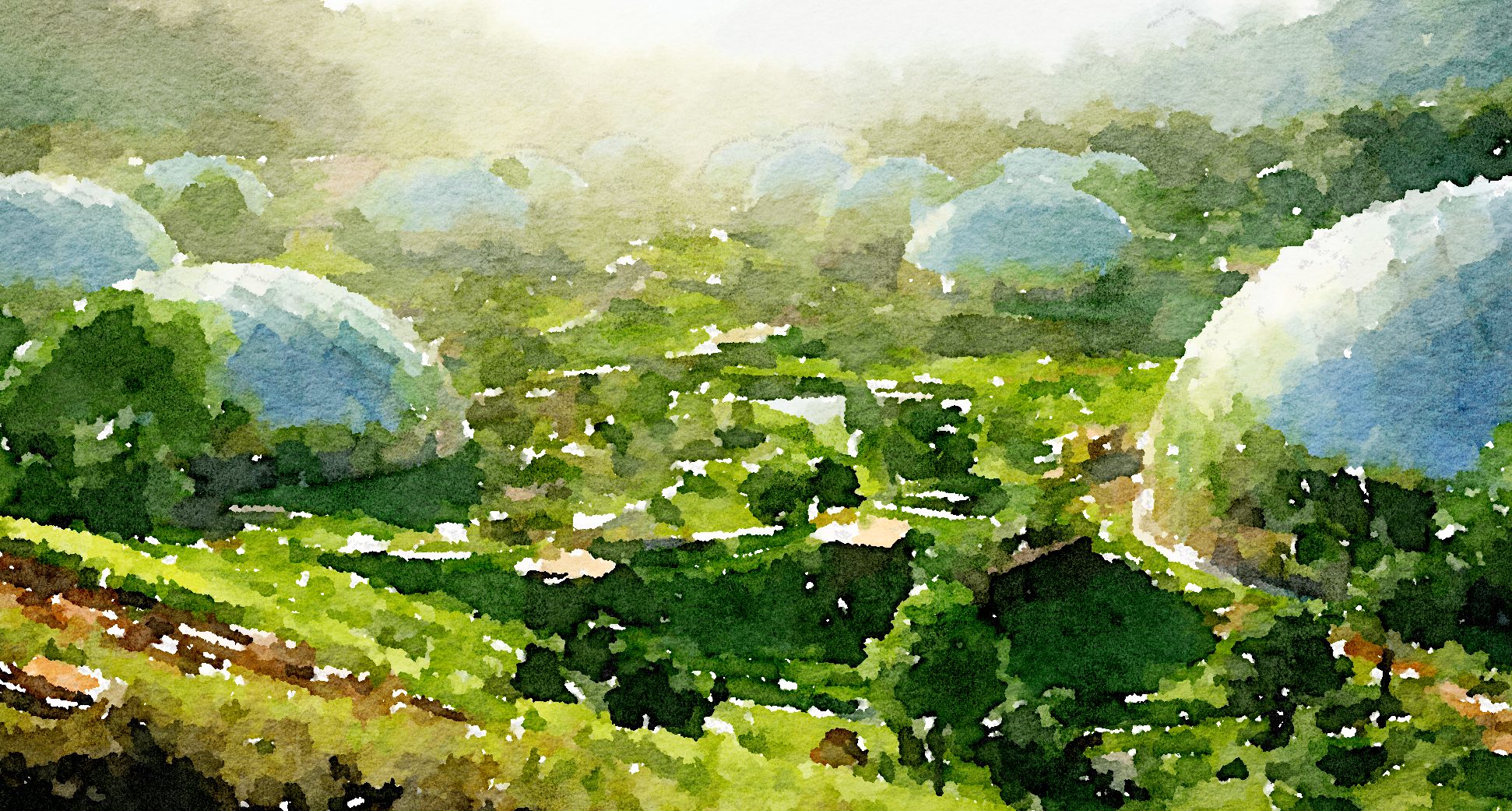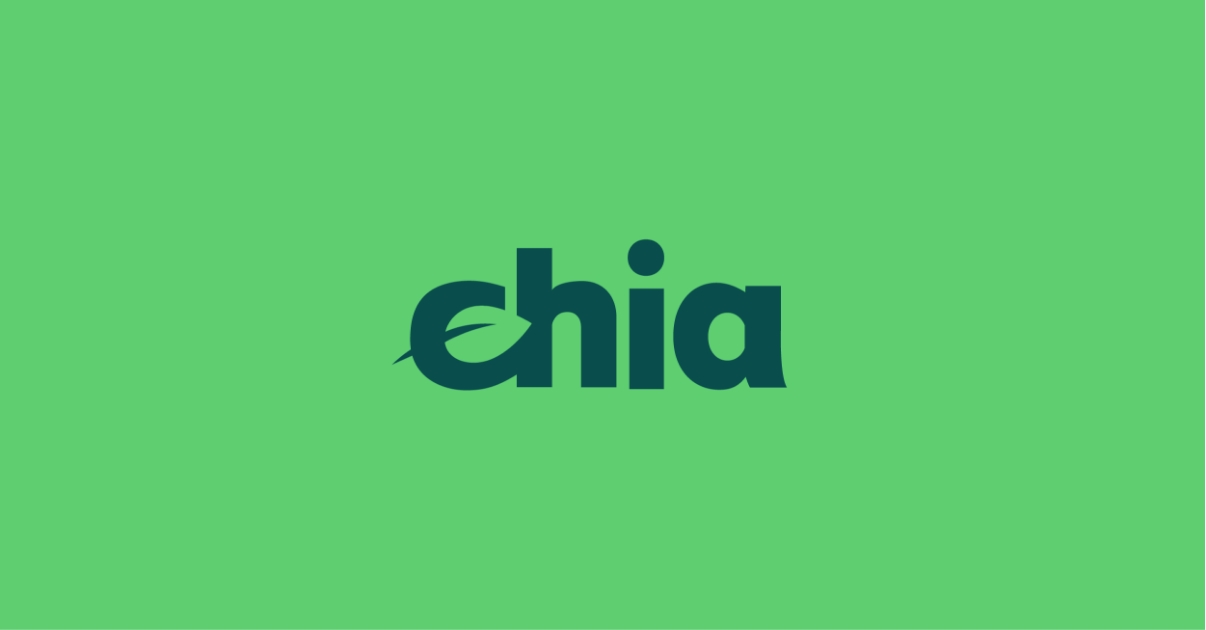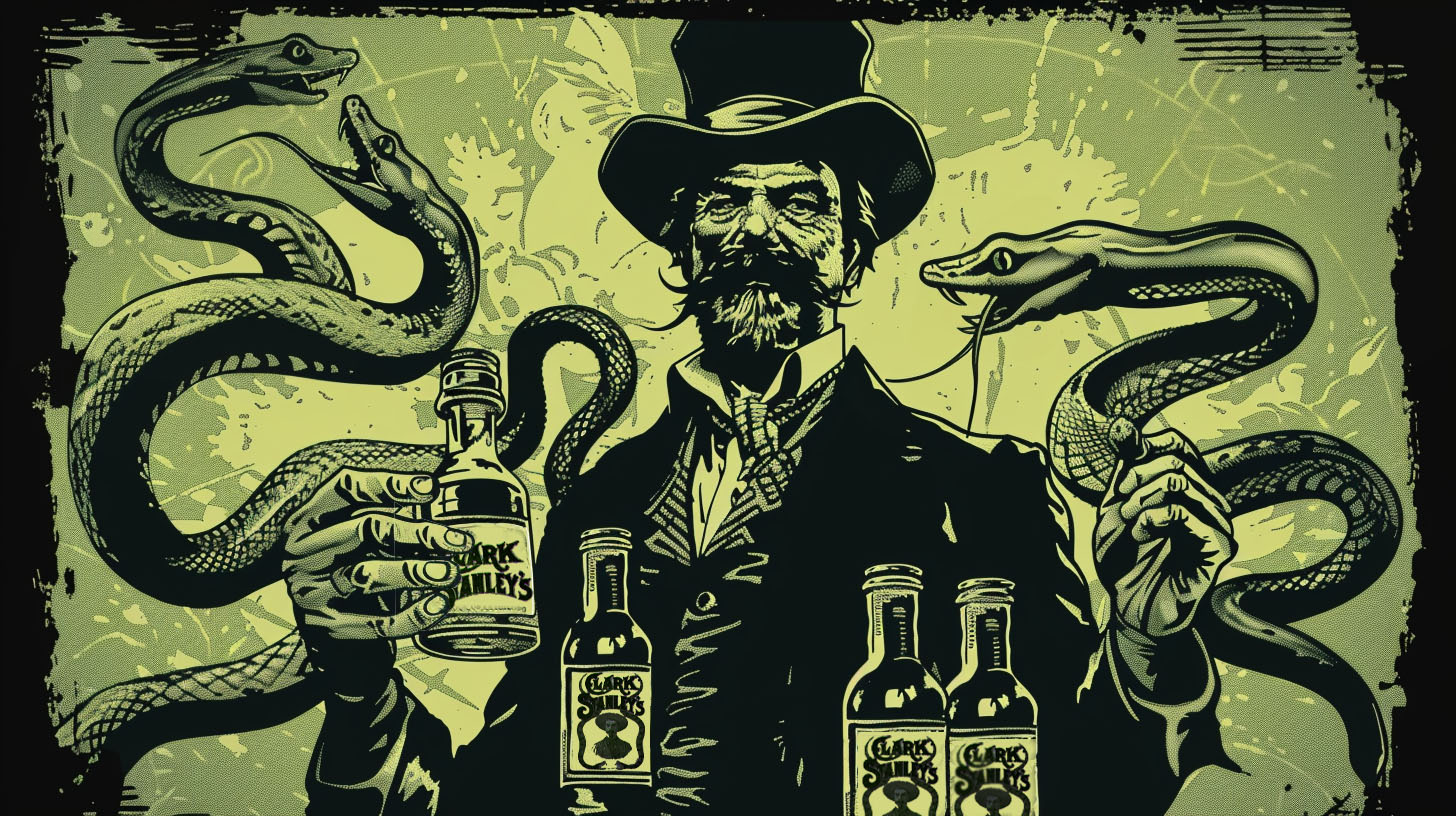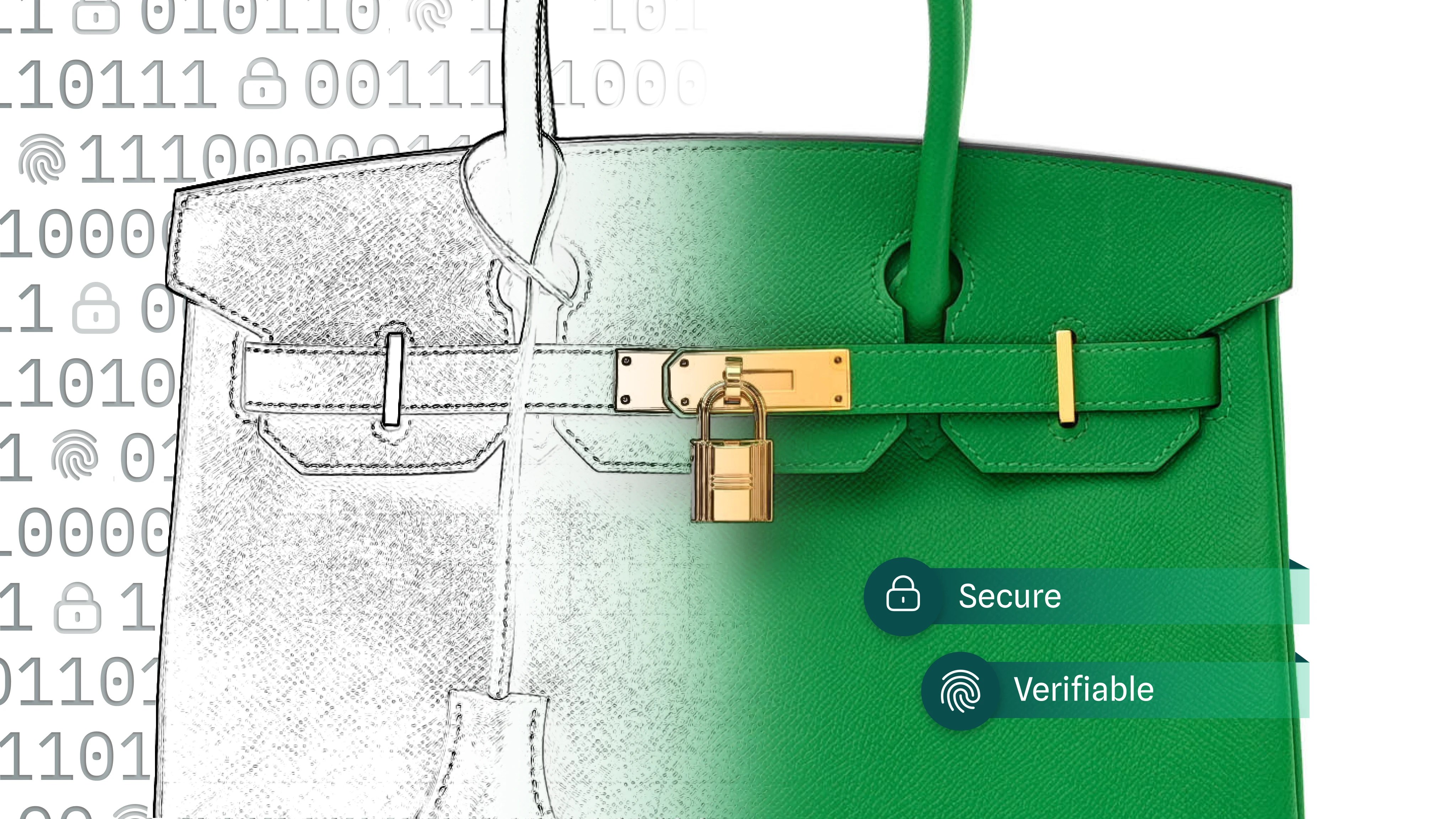The metaverse has not experienced widespread or significant adoption thus far. This may be because the existing technology caters to an audience that either doesn’t desire it or doesn’t yet grasp it. Presently, the metaverse seems to target NFT creators and gamers, but in reality, the limited number of active creators are promoting their products on deserted streets to an even smaller group of “gamers”.
The approach toward the virtual world has been too literal. Just because an online sandbox can be shared with other “players,” doesn’t make it a game, and certainly doesn’t mean people will flock to fill its parks and concert spaces, purchase digital assets from vendors, or spend any material time or assets engaging with it. It takes more than “if you build it (first), they will come.”
Looking at how folks could use the metaverse, we can make a few assumptions:
- First and most importantly, the metaverse should take a user-first approach.
- Customers want access to digital assets that resonate with them.
- Customers (and creators) have likely already chosen the ecosystems they will engage in, whether a game, social network, or wherever they hold their digital assets.
- Customers want to be able to buy, hold, sell, and engage with their assets across their chosen digital or virtual ecosystems while maintaining a consistent online identity and portfolio.
- And creators want the same protections for their intellectual property (IP) as they have outside the metaverse.
The metaverse has been built backward. Rather than starting from the user experience and giving them reasons to engage, the metaverse began by providing a space for creators to sell digital goods and was co-opted by a movement to be “the first” to establish the walled garden everyone else would crowd into.
We propose a different flow: allow the users – both creators and consumers – to choose their ecosystem by providing them with the tools to engage across games and universes. If done right, consumers are empowered to own and transfer content from brand to brand or universe to universe, and creators can make assets in their preferred ecosystem that are extensible to others, while still protecting their livelihoods and intellectual property. Field of Dreams makes for a great film but doesn’t serve as a strong foundation for building thriving digital ecosystems.
Interoperability is Critical
For the open metaverse and digital economy to thrive, users must be able to own their online identity and the digital assets they create and purchase – across ecosystems. The open metaverse should drive its creators toward interoperability rather than competition to create a single nexus that imposes arbitrary specifications for all. As a founding member of the. Open Metaverse Foundation, a Linux Foundation Project, Chia Network Inc. can represent the voice of users in the creation of future interoperability standards.
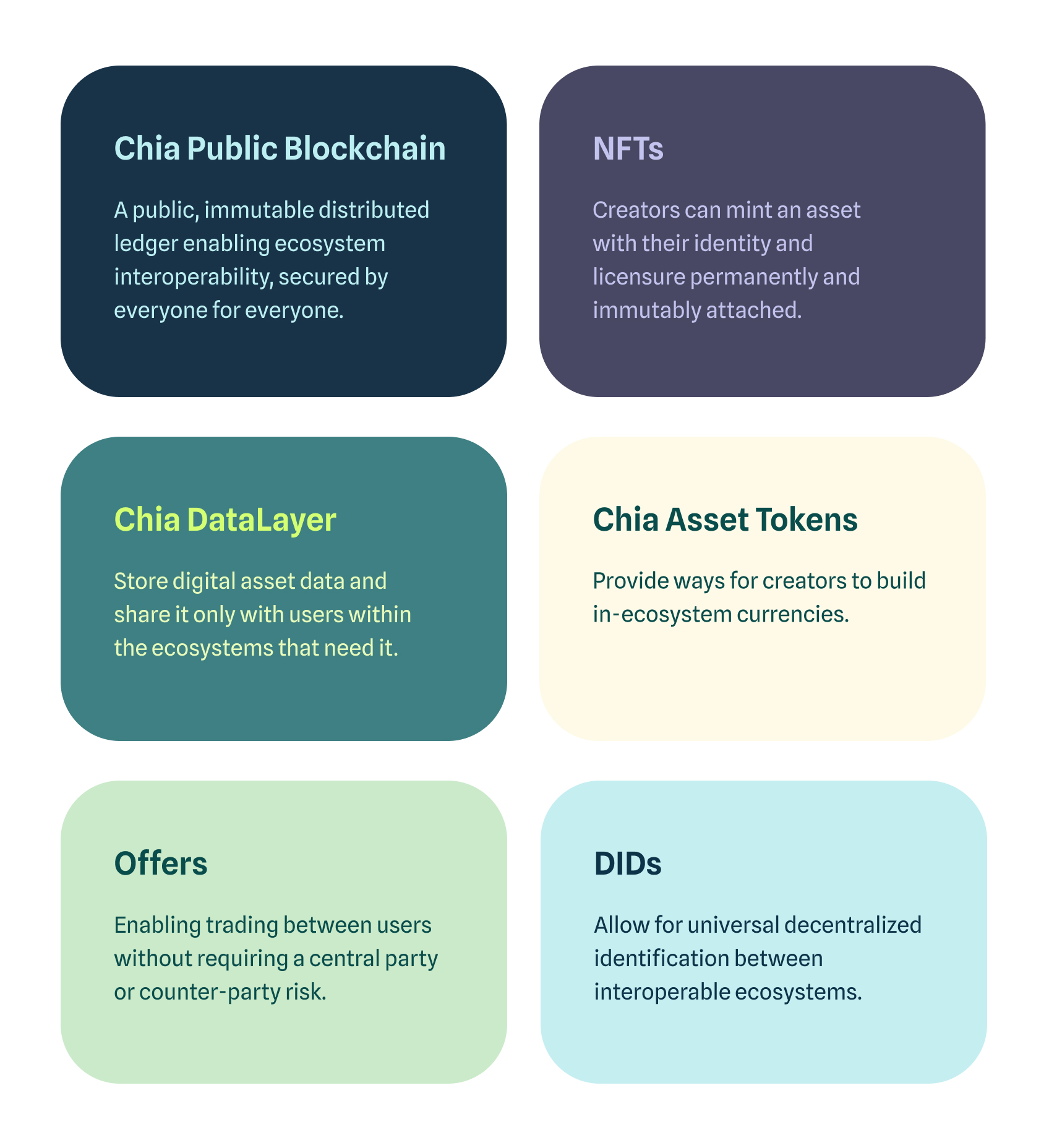
We believe in an open digital economy and have the technology to begin implementing it today. It’s now a matter of using the right building blocks rather than missing technology. How can we connect all of the technology (NFTs, Identity, data integrity) to build an open digital economy?
The Chia Open Digital Economy (“CODE”) framework.
CODE
With Chia technology and the CODE framework, we knew we could enable creators to incorporate their works into the Web3 digital economy, cultivating a flourishing ecosystem for creators and consumers. As we explored the implementation challenges and where best to deploy the framework first, the answer crystallized: Video Games.
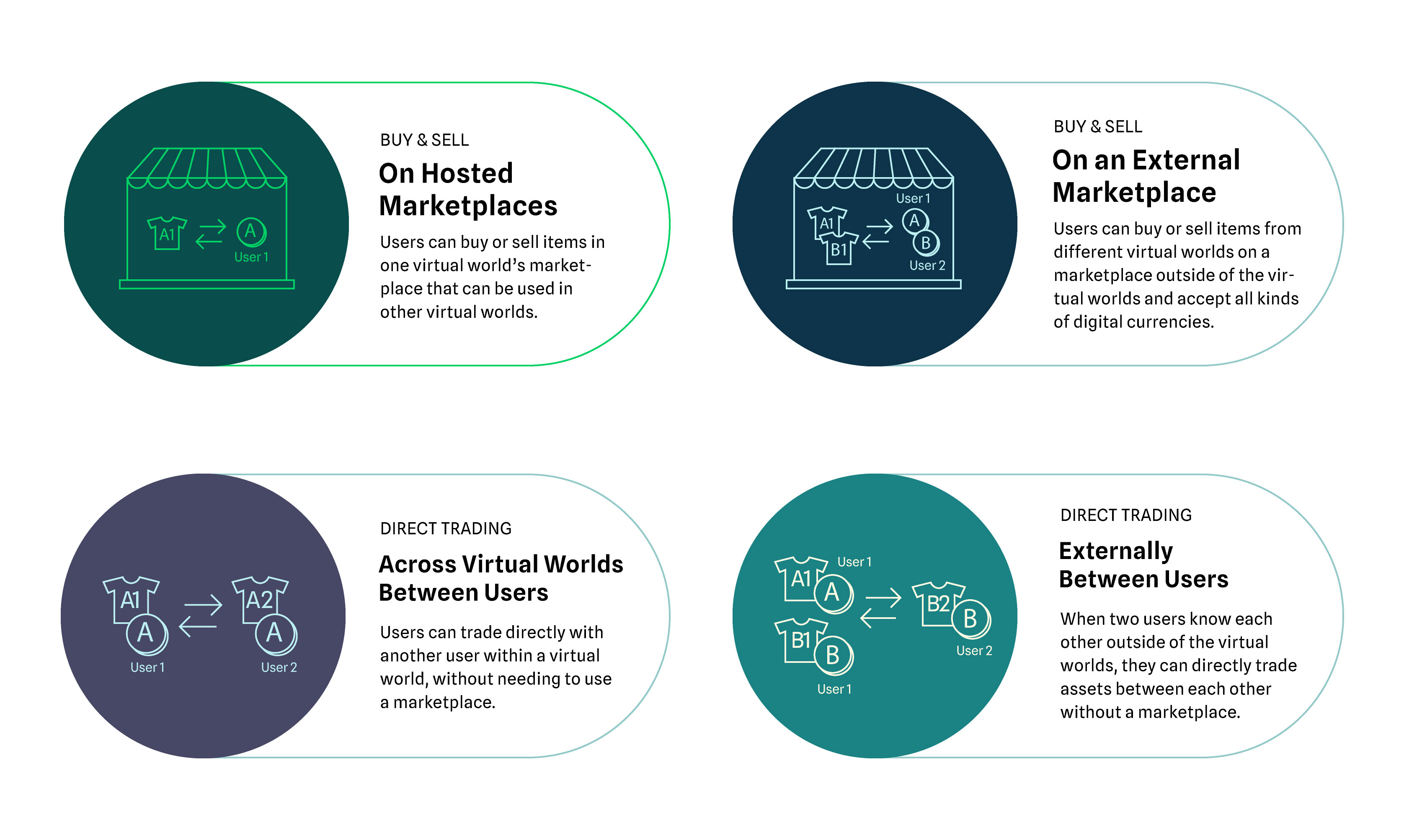
The first iterations of the metaverse focused on gamers and game studios because they’re quick to adopt, willing to adapt, and comfortable with new technologies and varied models in their ecosystems. By working with the video game industry and its constituents, we can learn and iterate on an open digital economy framework with an engaged audience to ensure an equitable balance between creators and users.
We Made a Game, Sort of.
In true open-source fashion, we partnered with members of the Chia ecosystem to build a game to demonstrate an open metaverse where small (indie games) and prominent creators (AAA games) can co-exist equitably and provide assets for players to own and use across digital universes.
Introducing the ChiaTCG: a science-fiction cypherpunk-themed online card game that allows anyone with Chia NFTs to play a web browser-based digital trading card game (TCG). Built as an open-source project, we’re jumpstarting the adoption and implementation of the CODE framework in gaming.
Read about the ChiaTCG and its development here.
